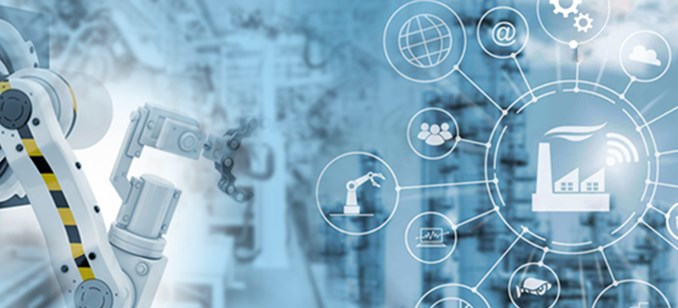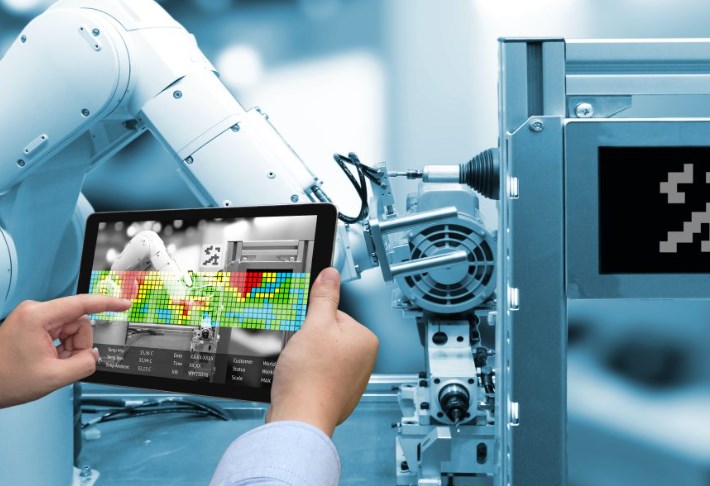OUTLINE:
Industrial Automation, A Kind of Efficiency and Innovation
 274
274Industrial automation is a transformative technology that has revolutionized the manufacturing and production landscape. By leveraging advanced technologies, automation streamlines processes, enhances productivity, and drives innovation across industries. In this article, we will explore what industrial automation entails, delve into its benefits, and highlight key technologies that power this remarkable evolution.
What is Industrial Automation?
Industrial automation refers to the use of various technologies and control systems to automate industrial processes, reducing the need for human intervention. It involves the integration of machinery, software, and advanced sensors to monitor and control manufacturing operations, resulting in increased efficiency, higher productivity, and improved quality.

Benefits of Industrial Automation:
- Enhanced Productivity: Automation eliminates manual tasks and repetitive processes, allowing machines to perform them with precision and speed. This leads to increased productivity, as machines can work continuously without fatigue or errors. With automation, manufacturers can achieve higher production volumes while maintaining consistent quality standards.
- Improved Efficiency: By automating industrial processes, companies can optimize resource utilization, minimize waste, and reduce downtime. Automation enables precise control over variables such as temperature, pressure, and speed, resulting in more efficient operations. Additionally, automation systems can analyze data in real-time, identifying bottlenecks and inefficiencies, thereby enabling timely interventions and process improvements.
- Enhanced Safety: Industrial automation mitigates the risks associated with hazardous tasks by replacing human operators with machines. Dangerous operations can be performed by robots or other automated systems, ensuring the safety and well-being of workers. Automation also reduces the occurrence of human errors, which can lead to accidents or product defects.
- Consistent Quality: Automation ensures consistent product quality by minimizing variations caused by human error. Precise control over manufacturing processes improves accuracy and repeatability, leading to standardized output. With automation, manufacturers can meet stringent quality requirements and deliver products that consistently meet or exceed customer expectations.
Key Technologies Driving Industrial Automation:
Robotics and Automation Systems: Robots play a pivotal role in automating various tasks within industrial settings. They can perform repetitive actions with precision, handle heavy loads, and operate in hazardous environments. Advanced robotics, such as collaborative robots (cobots), work alongside human operators, further enhancing productivity and safety.

Programmable Logic Controllers (PLCs): PLCs are specialized computers that control and monitor industrial processes. They receive inputs from sensors, make decisions based on pre-programmed logic, and control the output devices. PLCs are widely used for controlling machinery, managing production lines, and coordinating multiple processes simultaneously.
.jpg)
Internet of Things (IoT): IoT connects devices, sensors, and systems to gather and analyze data in real-time. In industrial automation, IoT enables smart factories by integrating machines, sensors, and production systems into a unified network. This connectivity allows for remote monitoring, predictive maintenance, and data-driven decision-making, resulting in increased efficiency and reduced downtime.

Artificial Intelligence (AI) and Machine Learning (ML): AI and ML technologies are transforming industrial automation by enabling machines to learn, adapt, and make intelligent decisions. These technologies can analyze vast amounts of data, identify patterns, and optimize processes for improved efficiency and productivity. AI-powered systems can also enable predictive maintenance, reducing equipment failures and unplanned downtime.

Conclusion:
Industrial automation has ushered in a new era of efficiency, productivity, and innovation in manufacturing and production. By leveraging advanced technologies such as robotics, PLCs, IoT, and AI, companies can streamline operations, enhance safety, improve product quality, and achieve higher levels of efficiency. As automation continues to evolve, the potential for increased automation adoption and integration in industries across the globe is vast. Embracing industrial automation can empower organizations to stay competitive, drive growth, and unlock new opportunities in the dynamic and ever-evolving industrial landscape.

Disclaimer: The views and opinions expressed by individual authors or forum participants on this website do not represent the views and opinions of Chipsmall, nor do they represent Chipsmall's official policy.

share this blog to:

